How Can We Reduce Plastic’s Impact on Food and Health Systems?

Unilever Bangladesh Limited and the Global Alliance for Improved Nutrition (GAIN), in partnership with The Daily Star, organised a roundtable discussion titled 'Sustainable Plastic Solutions in Food and Health Systems' on 12 December 2024. Below is a summary of the discourse.
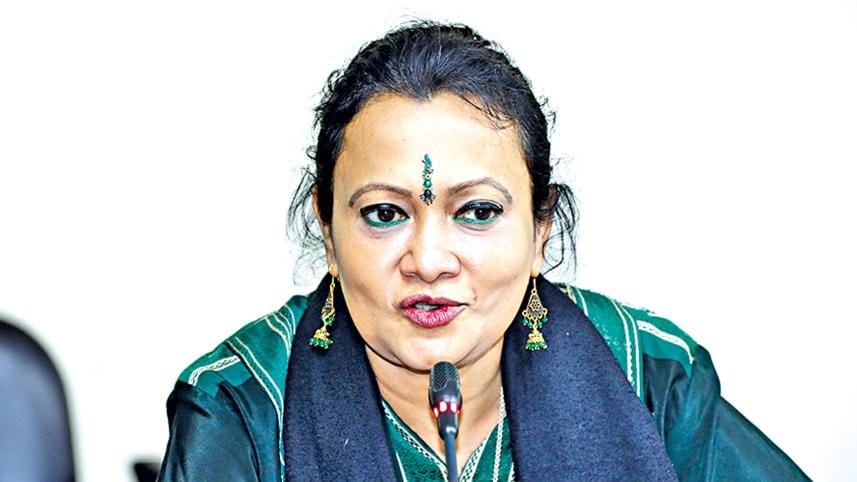
Dr. Rudaba Khondker, Country Director, GAIN (Global Alliance For Improved Nutrition) Bangladesh
In the post-COVID era of 2022, we commenced operations in five distinct markets—New Market, Bonolota Fresh Market, Islambagh Fresh Market, Mohakhali Fresh Market, and Mohammadpur Town Hall. These markets were chosen as they had been closed during the pandemic. As the livelihoods of many are deeply intertwined with commerce, it was imperative to re-establish a reliable bond between buyers and sellers to restore confidence and ensure compliance with essential health measures amidst the challenges posed by the pandemic.
While working in these markets, we prioritised enhancing human-centric elements, such as improving consumer purchasing patterns to boost their capacity for acquiring safe and healthy foods, ensuring sellers take responsibility for the quality and fair pricing of their goods, and promoting fair pricing practices in the markets. Observing the prevalent behaviour of consumers carrying products in multiple polythene bags, we introduced a strategy to segregate plastics and other types of waste, aiming to enhance waste management. In the Mohammadpur Town Hall Market and Mohakhali Market, we succeeded in achieving complete waste segregation. We approached Unilever Bangladesh to pilot a learning initiative targeting consumer behavior change for plastic reduction and work with wet market actors to build a plastic collection value chain to enhance food safety.
Three critical lessons emerged from this initiative. Firstly, a sustainable approach requires time and the collective involvement of all stakeholders, including businesses, consumers, and authories. Secondly, collaboration among businesses, civil society, and other key players is essential. Thirdly, it is crucial to explore alternative avenues—such as public-private partnerships and expanding this pilot project to other markets—to bolster government efforts.
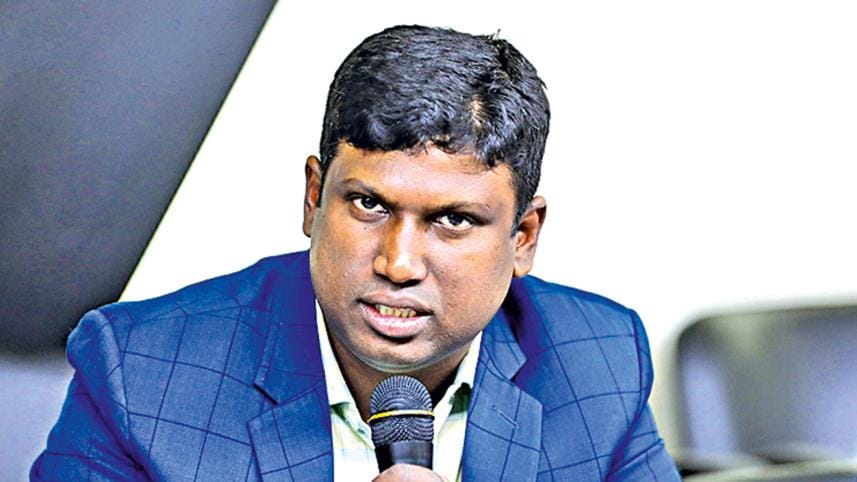
G.M. Reza Sumon, Project Manager & Lead, Workforce Nutrition & Fresh Market, Global Alliance for Improved Nutrition (GAIN)
The Global Alliance for Improved Nutrition (GAIN), a Swiss-based foundation established at the UN in 2002 to combat malnutrition, operates as an alliance through partnerships with governments, businesses, and the private sector to make healthier food choices more appealing, accessible, and affordable.
Foodborne diseases can have significant economic repercussions for individuals, food businesses, and even countries. According to the FAO, 85% of households in Dhaka procure their food from fresh markets. However, these markets pose a risk of spreading diseases due to contamination, as vegetable, meat, and fish markets often operate in close proximity. Ensuring food safety in traditional markets requires a focus on three areas: creating an enabling environment, fostering positive behavioural changes, and implementing best practice technologies. In creating an enabling environment, key actions include enhancing infrastructure, community practices, interpersonal interactions, and establishing policy-regulatory frameworks for effective enforcement. Behaviour change is equally vital, yet often hampered by a lack of cognitive understanding about market maintenance—such as cleanliness and waste segregation—and the perception that these responsibilities do not lie with them, thus ignoring their impact on consumers.
During the COVID pandemic's onset, markets faced closure due to infection fears. In 2022, partnering with North City Corporation, we enhanced safety in kitchen markets, adding women's toilets, breastfeeding corners, and better flooring, while segregating plastic waste.
In April 2024, we launched a dedicated pilot project, For People & Planet: Resilient, Healthy & Sustainable Food & Environment Systems, in collaboration with Unilever Bangladesh to manage the plastics and polythene generated in markets. Our aim was to develop collaborative, sustainable solutions and set a successful example for Bangladesh.
Our project activities in these markets encompassed distributing dustbins to promote segregation of plastic waste and forming committees to address plastic pollution within wet market. All kitchen markets in Dhaka's two city corporations have elected market committees comprising 9 to 11 members. From these, we established a Plastic Pollution Eradicator Committee with five members from each market to oversee daily plastic collection and monitoring. These committee members were dedicated to supporting the daily collection of plastic waste and overseeing the process.
We provided capacity-building training to 250 vendors on waste segregation and management, personal health and hygiene, safe and nutritious food practices, financial literacy, and business value chain for plastic collection. Post-training, vendors began segregating plastics into designated bins supplied by us. For restaurants in the surrounding areas, we provided two types of bins—perishable and non-perishable—and ensured segregation at the source. Plastic collection management was formalised through agreements between plastic collection vendors and market committees. Dustbins were strategically placed in front of shops to facilitate waste segregation, and the segregated plastic waste was sold to collection vendors at the end of each day. Over the past six months, we collected 2,604 kg of plastic waste. Our initiatives engaged approximately 5,227 consumers in awareness campaigns, training, and community engagement, resulting in positive shifts toward sustainable waste practices.
Our strategy entails a collaborative effort to identify alternative solutions, motivate kitchen market committees, and involve various stakeholders. Initially focusing on vendors, the initiative expanded to include restaurant owners, acknowledging their substantial role in generating plastic waste, such as bottles, polythene, and other materials.
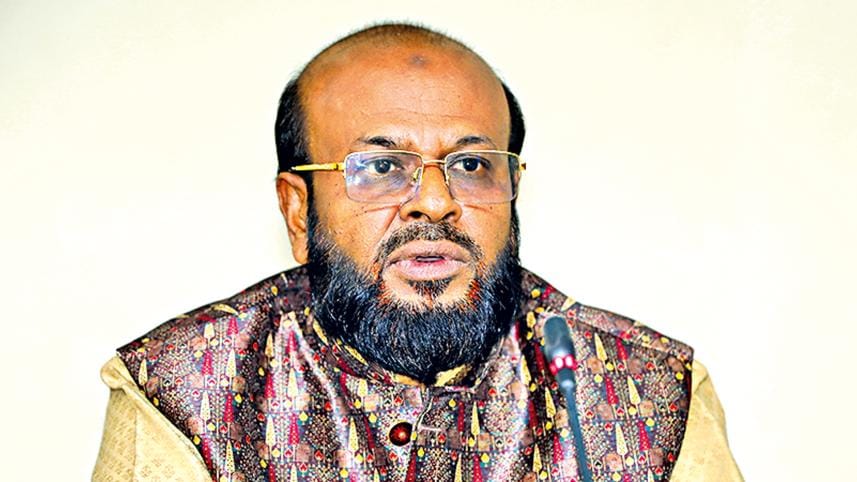
Md. Lutfor Rahman Babul, President, Mohammadpur Town Hall Market
The complete elimination of polythene remains a challenge due to limited alternatives. Nonetheless, our sellers encourage consumers to bring fabric or jute bags from home. Over the last six months, we have collected 1,300 kg of plastic waste in Mohammadpur Town Hall Market, and our efforts are ongoing.
Through training and various campaigns, our sellers are now more aware of the harmful impacts of using plastic and polythene, significantly improving our waste management system. We have implemented separate disposal for organic and inorganic waste, and plastic is now sold to waste collectors, reducing litter in the market. These initiatives have heightened awareness among our sellers and buyers about responsible plastic use and disposal. While meetings and discussions are beneficial, what we urgently need are concrete laws to inspire the masses to adopt new pathways.
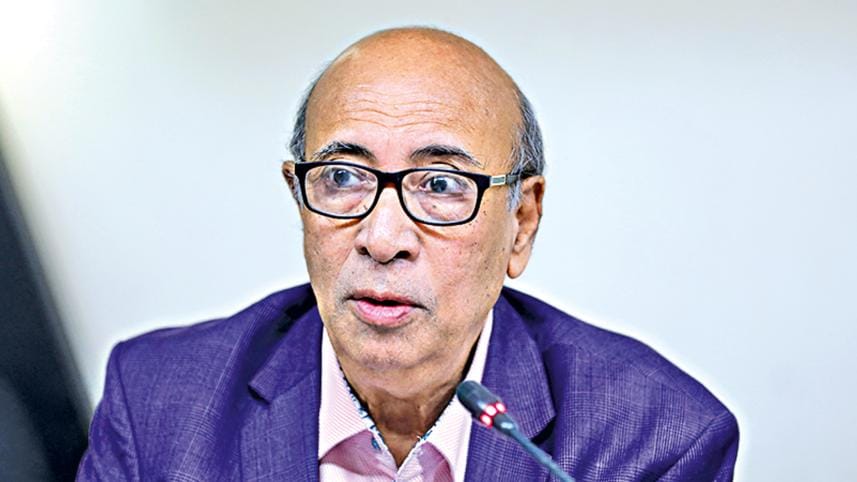
Shamim Ahmed, President, Bangladesh Plastic Goods Manufacturers & Exporters Association (BPGMEA)
Plastic packaging is essential for preserving the quality packaged foods, extending shelf life, and ensuring food security. It is crucial to distinguish between plastic and pollution; our goal is to end plastic pollution, not the use of plastic itself. The complete elimination of plastic is neither feasible nor practical. Despite the polythene ban in 2002, its continued use underscores the need for a deeper understanding of the issue. Countries like Japan and the US use more plastic per capita but face less pollution due to long-standing awareness and effective plastic waste management.
Compared to other packaging materials, plastic has less environmental footprint and is a more practical and cost-effective solution for packaging items such as rice, fertilizer, iodised salt, and liquid milk. Additionally, hospitals rely heavily on plastic for medical equipment. Instead of targeting plastic, we must focus on reducing pollution and promoting sustainable practices.
Extended Producer Responsibility (EPR) is vital in promoting responsible use of plastic, circularity and waste management systems. Although we worked on EPR for months—incorporating inputs from the private sector and voluntary-based implementations, with yearly plans and rules for institutions (e.g., SMEs, multinationals)—progress has stalled.
Incineration plants for waste treatment as end of life solution can help reduce waste volume while potentially generating energy, easing plastic-related pressures on Dhaka.
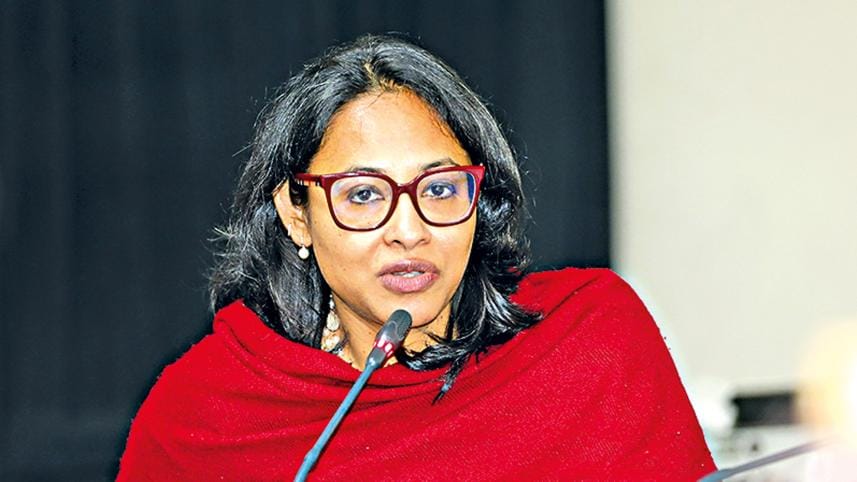
Shamima Akhter, Director of Corporate Affairs, Partnerships and Communications, Unilever Bangladesh Limited
A World Bank assessment in Bangladesh identified thin, single-use polythene as one of the largest contributor to plastic pollution. These unbranded, lightweight bags, commonly sourced from wet markets and used widely in households, have persisted despite the 2002 ban. Our initiative with GAIN, therefore, focuses on reducing polythene use in wet markets, by engaging sellers, buyers and crating a better waste management practices. By combining behavior change targeting reduction with proper management, we have shown that change is possible.
Although not a groundbreaking initiative, our efforts have yielded results worth sharing with the nation. Wet markets and bazaars are critical hubs where collaborative efforts involving sellers, consumers, and businesses are essential to foster meaningful change in addressing this pressing issue. Responsible use and preventing plastic waste, particularly polybags, from ending up in landfills is a priority. While global plastic waste recycling rates are at 9%, Bangladesh's share is 40%, which, though commendable, still leaves room for improvement. Much of this work is done by stakeholders in the informal sector and value chain formalization can give us further results.
Local government bodies, especially city corporations and relevant ministries, play a crucial role in this context. The city corporation regulates markets and enforces the Solid Waste Management Rule of 2021, which places primary responsibility for source segregation enactment. The Food Safety Act, which regulates the use of plastics in food packaging, also plays a significant role in plastic management. In this regard, the city corporation shall come forward and work with stakeholders proactively to enhance effective plastic waste management and promote sustainable practices.
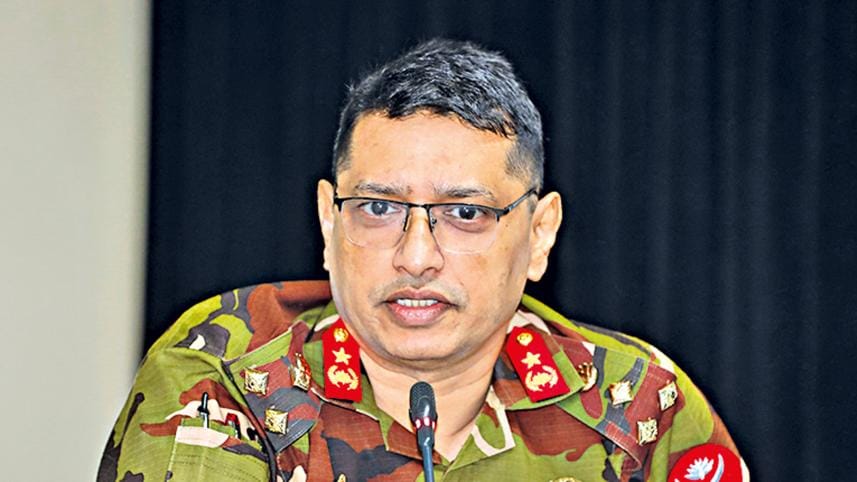
Brig. General Imru-Al-Quais, Chief Health Officer, Dhaka North City Corporation
Under the City Corporation Act of 2009, Dhaka North City Corporation oversees 454 markets, with Mohammadpur Townhall and Mohakhali Bazaar standing out for their commendable waste management practices, particularly waste segregation at the source. An integrative approach involving the environment, waste management, and urban planning departments could effectively regulate, minimise, or even eliminate waste.
Focusing on source segregation is crucial in waste management. Recently, a project involving 1,000 households in Mirpur showed productive results when households took the initiative in waste segregation. However, when domestic workers handled waste, it often led to hazardous situations.
Dhaka North City Corporation generates approximately 4,200 tons of waste daily, with 10% being plastic. We manage to recycle about 3,500 tons, but the remaining 15% ends up in rivers and drainage systems. We currently manage 60 acres of landfill in Amin Bazar, with an additional 30 acres recently acquired for mixed waste management, jointly managed with China.
Single-use plastics, such as polyethylene bags and PET bottles, are often processed by the informal sector for resale. However, it remains unclear whether this recycling process is regulated or approved by the Bangladesh Standards and Testing Institution (BSTI) or the Environmental Department.
Continuous processes involving urban and rural societies are non-negotiable. While knowledge about plastic's negative repercussions is widespread, the challenge lies in practising what we preach.
Plastic buy-back schemes are validated methods in developed countries. Implementing such policies in Dhaka requires public-private partnerships to be effective, with companies initiating their own programmes. Allocating public dustbins is only the beginning; securing them thereafter requires substantial financial backing.
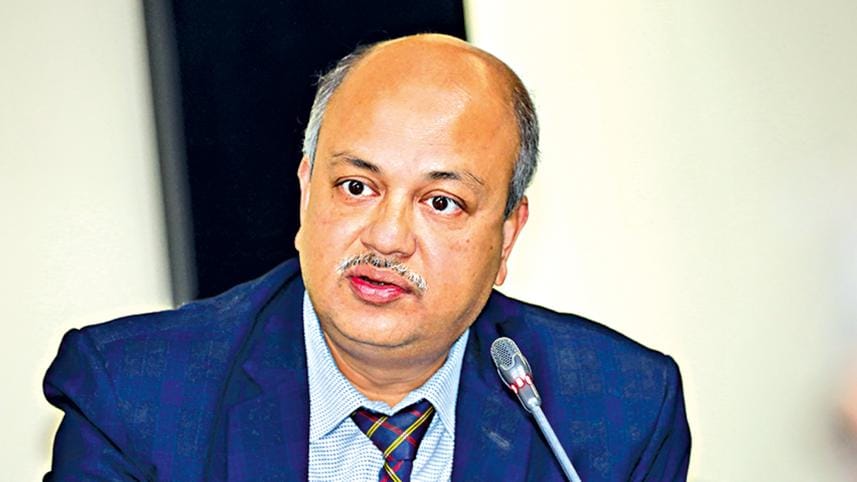
Dr. Md. Raknuzzaman, Vice Chancellor, Jamalpur Science & Technology University
I have developed three key models: 1) Attitudinal Dilemma Change (CAD), 2) Buy and Back (BB), and 3) Alternative Plastic Management (APM).
The Buy and Back (BB) policy includes a waste management fee in the product price. Customers receive three polyethylene bags—one each for plastic waste, cans, and kitchen waste—promoting proper disposal and sustainability.
Plastic production requires 13,000 particles of raw materials, and plastic-induced products routinely pollute air, soil, and water, often leading to crop failures. I coined the term "plastic masking" to describe the tendency of plastic to "mask" environmental damage.
Discussing plastic waste management within the sustainability framework—considering social, economic, environmental, and political dimensions—can sometimes reduce waste by creatively involving all stakeholders. A comprehensive approach can pave the way for more effective and sustainable waste management systems.
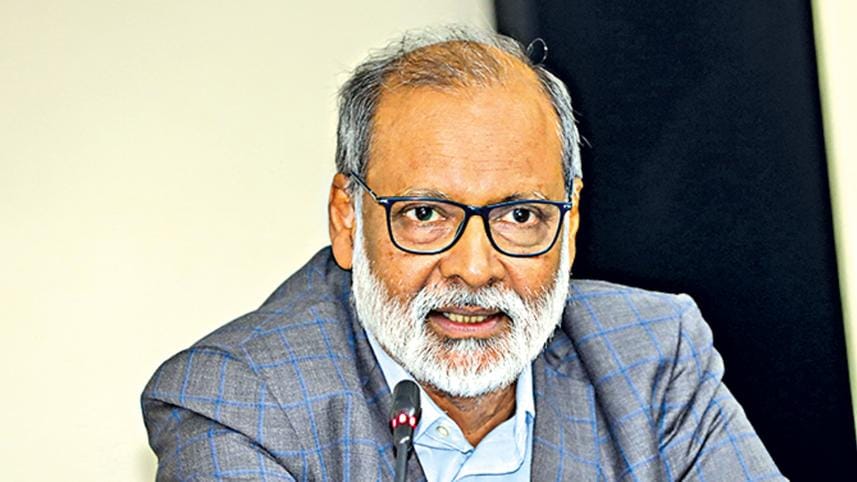
Dr. Ijaz Hossain, Professor, BUET
Many countries have established efficient waste management systems. For instance, Japan and Singapore have achieved 100 percent collection of plastic waste, which is either incinerated or sent to landfills. While landfilling remains the standard practice globally, managing these sites presents significant challenges that require careful attention. Unfortunately, our current waste management approach is ineffective. Plastic waste is often scattered haphazardly, highlighting the urgent need for substantial improvements in our solid waste management system. Notably, several cities in India have made remarkable progress in addressing these issues.
Data indicates that in our region, less than 50 percent of waste is collected, leaving the remainder to decay in open spaces or along roadsides. Unlike organic waste, which decomposes, plastic does not— it is carried by the wind, exacerbating the problem. Whenever waste management fails, blanket bans are often imposed as a quick fix.
A critical issue is the insufficient number of dustbins for proper plastic disposal. At one point, Dhaka City installed dustbins throughout the city, but most have since disappeared. The government previously enacted effective regulations, such as mandating that plastic bags be at least 20 microns thick. However, rather than reinforcing these regulations, the government abruptly opted for an outright ban on plastic bags, disregarding alternative models like Extended Producer Responsibility (EPR), which have been successful in other countries.
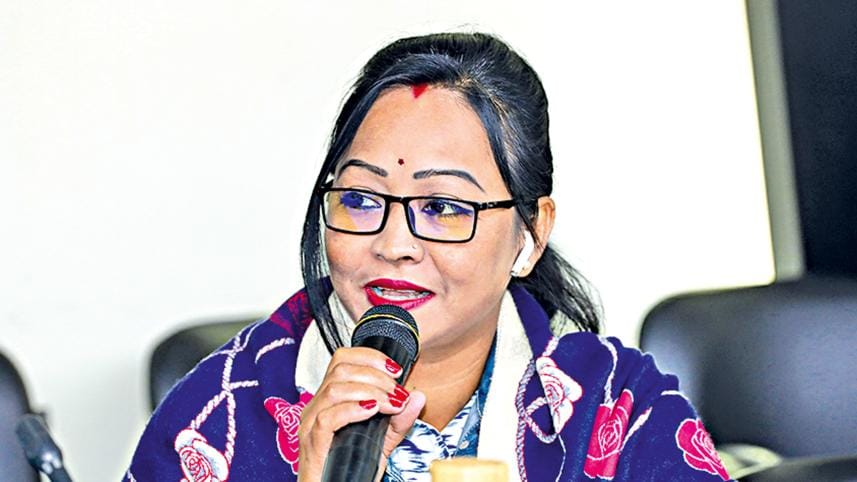
Rina Sinha, Consumer, Mohammadpur Town Hall Market
In 2024, I attended a campaign organised by Gain, where discussions centred on the harmful effects of plastic on health. This was an eye-opener for me, as I hadn't been aware of these issues before. They encouraged us to use cloth bags instead of plastic ones. Furthermore, a breastfeeding zone and a women's washroom were established in the market, making it much more comfortable. Now, I find the market a pleasant place to shop.
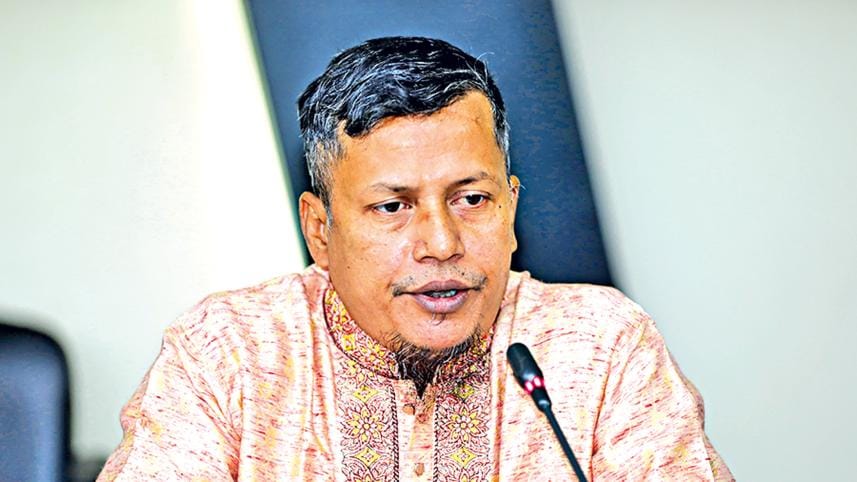
Md. Majharul Haque Babor, Vendor, Poultry, Mohammadpur Town Hall Market
I was working as an office secretary at the market when Gain Bangladesh and Unilever jointly organised a seminar on plastic waste management. During the seminar, a committee was formed, and I was appointed as its head. Together, we initiated a programme to reduce plastic waste in the market. As part of this initiative, we were provided with two types of dustbins—one for dry waste and another for wet waste. On average, I collect 17-18 kilograms of plastic daily, and the programme is still ongoing. I store the collected plastic in one place before selling it to waste buyers.

Md. Firoz Alam Swapon, President, Mohakhali Wet Market
The transformation has been remarkable. With funding, the Mohammadpur and Mohakhali markets were renovated with tiled floors, and separate toilets were constructed for men and women, along with a breastfeeding room and handwashing facilities. Recently, they also provided bins for both dry and wet waste. A few days ago, a representative from the Environment Department met with us to discuss plastic management. We informed them that we had already initiated ongoing work on plastic recycling in collaboration with Green Bangladesh.

Kazi Israt Jahan Illin, Youth Representative, Student
As part of the initiative, we organised an exhibition to educate buyers about plastic recycling and its potential for reuse. Additionally, we conducted quizzes with buyers and sellers, offering small gifts as incentives. During these interactions, many participants expressed a reluctance to use plastic but emphasised the lack of viable alternatives.
Expanding initiatives like this to other urban and rural areas could significantly enhance public awareness of plastic waste. As a youth representative, I am committed to continuing my involvement in such initiatives and believe that other young people would also be eager to participate in these efforts.
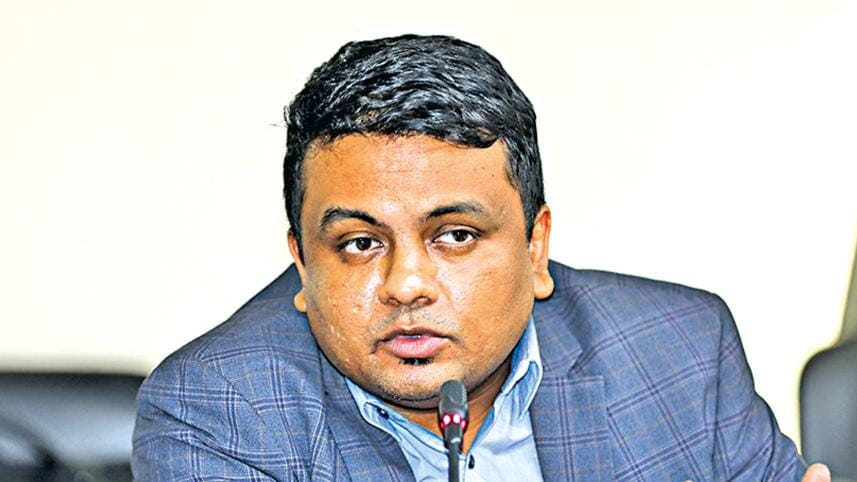
S. M. Faysal, Public Relations and Projects Manager, Unilever Bangladesh Limited
Unilever Bangladesh has been driving plastic waste management initiatives since 2020, and we believe the issue needs to be addressed through a circular economic model. Through our largest initiative in Chattogram, we have shown that plastic waste can be managed through public-private collaboration and citizen awareness. However, we also understand that low-value polyethene is impacting our environment, and hence, such plastic use needs to be reduced and managed through wider stakeholder involvement. Our collaboration with GAIN has given us great hope and inspiration for the future.
However, it is to be noted that more such initiatives need to be continued as behavior change takes time. We expect the market committee will continue the good practices instilled through the project and continue advocating for plastic alternatives. At the same time, segregated waste collection is always critical for keeping plastic in the loop, and hence, City Corporations' active collaboration is important to strengthen solid waste management.
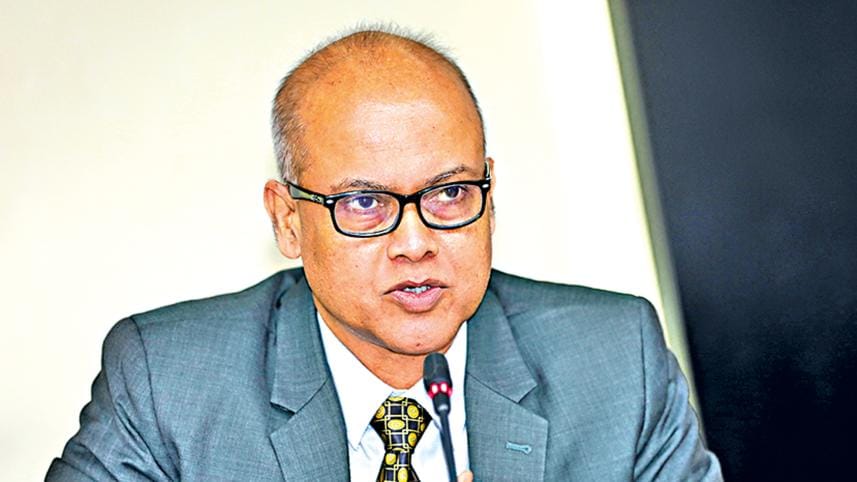
Ashek Mahfuz, PhD, Portfolio Lead, Large Scale Food Fortification (LSFF) and Value Chain, GAIN
Indeed, a certain percentage of the nation's plastic is recycled. Sustainable solutions point towards alternatives to plastic (e.g., paper, wood, jute), but at this juncture, utilising the material responsibly remains the most viable option.
Unilever's participation in this initiative is truly commendable and greatly appreciated by all of us. Local companies have become responsible stakeholders as well. Youth representatives and students must also contribute, as the dissemination of awareness and recycling are notable facets. The country's leading department stores may also play a role, such as offering free bags.
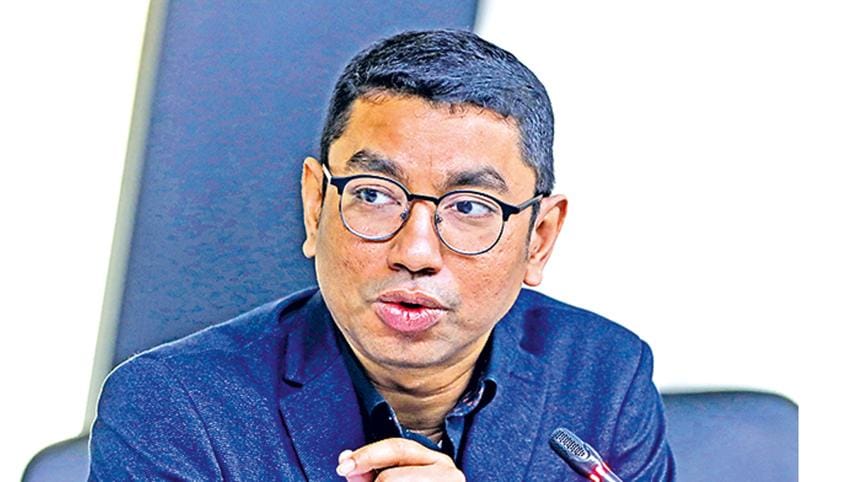
Tanjim Ferdous, In-Charge, NGOs & Foreign Missions, Business Development Department, The Daily Star & Moderator
In Bangladesh, plastic waste from wet markets has become a significant challenge for our environment and public health. The main objectives of this discussion are to share lessons from the pilot project, develop collaboration among stakeholders, cultivate scaling strategies to expand to other markets, integrate nutrition and health aspects with climate action plans, reduce plastic waste, and improve food security through local, innovative solutions.
Recommendations
- Focus on eliminating or reducing the use of thin, single-use polythene bags, especially in wet markets.
- Involve government agencies, businesses, and NGOs in sustainable plastic management initiatives to create a more unified approach.
- Conduct awareness campaigns to educate both vendors and consumers about the harmful effects of plastic and promote responsible disposal.
- Encourage the adoption of sustainable alternatives to plastic such as paper, jute, or cloth bags especially for packaging food items.
- Develop comprehensive waste management strategies that include segregating and recycling plastics to ensure circularity.
- Promote sustainable market practices that benefit both the environment and public health
- Promote Extended Producer Responsibility (EPR) by developing policies that hold manufacturers accountable for the lifecycle of their plastic products.



 For all latest news, follow The Daily Star's Google News channel.
For all latest news, follow The Daily Star's Google News channel.
Comments